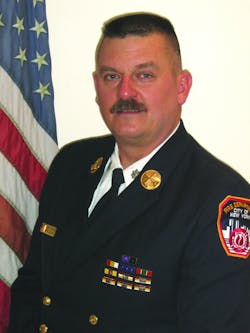New Officers: Don't Be Afraid to Change
When firefighters are promoted to officer positions, there is often much discussion about how well these new officers are going to perform, how they will treat their firefighters and in general how they are going to behave.
Most firefighters work in the fire service for several years before they move up to officer positions and as a result they have already established their reputations. After several years working in engine companies, firefighters who are promoted to lieutenant may continue handling some situations the same way they always have and may begin to handle other situations in entirely new and different ways. Here’s a look at some of these situations and how they can be handled successfully.
Let’s first talk about behaviors that should not change. If a new officer was a sharp and competent firefighter, that is the kind of behavior that should be continued. If the officer worked at a volunteer fire department, he or she was always the first one to arrive at the firehouse on drill night. If the officer was a career firefighter, he or she always arrived early for the shift and never rushed out early after a shift was over. These are behaviors the new officer should continue They are positive, they are helpful to the department and fellow firefighters and they set a great example for the younger firefighters who are just finding their way.
Another personal trait that new officers had as firefighters was that they always knew what they were doing. They trained and practiced with their tools and equipment regularly and they stayed up to date on new firefighting skills and tactics by reading articles in trade magazines and online. These too are excellent habits for officers to practice that will keep them on top of their game and keep their crews safe and effective.
Some behaviors must change
So what behaviors may new officers have to change? If a firefighter was a prankster or a practical joker around the firehouse, those activities may have to go. As an officer, with both senior and junior members looking for guidance and a good example, the new officer must set that example by displaying a more serious and responsible demeanor. Effective officers must maintain a calm and professional attitude. They must be approachable so that firefighters with questions or complaints will feel comfortable going to the officer with those issues.
Another important aspect of an officer’s job that firefighters don’t generally have to consider is crew accountability and safety. Even a senior experienced firefighter is not responsible for the safety and survival of the entire company or crew. We all know that we all take care of ourselves and our fellow firefighters, but the company officer is practically, legally, ethically and absolutely responsible for his or her people. Every decision the officer makes must consider that fact first.
Whether the question is “Can we take the rig a few blocks out of our first-due area for an errand?” or “Should we change the roof saw blade with five carbide tips missing” the officer must first consider the crew safety. A new officer probably never had to consider those issues as a firefighter and is now in a position where what he or she says is what will happen. After experiencing several events that involve these issues, new officers will begin to realize how important their decisions are and how vital it is that they consider their crews’ safety and survival first.
Another area in which new officers discover a new perspective is discipline. Even in well-behaved departments where discipline issues are few and far between, the new officer is now on the other side of the fence when it comes to discipline. Although there is no one way to apply discipline, the new officer must begin to develop his or her own way of handling discipline issues both large and small. Of course, many of our discipline lessons in the fire service are learned by firefighters when they watch and observe how their officers handle them. After considering how those events played out, in conjunction with your own personal perspective, new officers can develop their own ways of handling discipline.
These are just a few of the many issues that arise when a firefighter makes the move up the ranks to an officer’s position. Some of the issues are relatively minor and may involve the officer and a single firefighter. Others may be earth-shattering events that eventually reach the chief’s office. Whether minor or major, they are all important. As an officer, you must make decisions based on your new position, and that is as agent of the department. You are answerable to your superior officers and must make your decisions based on that fact. Yes, you must maintain a positive relationship with your crew members and consider their safety, comfort and preferences, but the “good of the department” must receive your first consideration.
